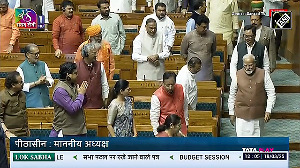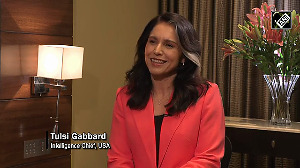- Capital exodus raising alarm in emerging nations
- BRICS talked of joint action to offset stronger dollar
- Group still far from coordinating monetary/forex policy
Plans by the world's leading emerging economies to join forces to battle the latest bout of global financial turbulence could remain on the drawing board once again at the G20 meeting in Moscow this week.
 An exodus of capital from Brazil, Russia, India, China and South Africa prompted by an expected scale-back in US monetary stimulus has raised fears about the health of their economies, which are already losing some of their luster.
An exodus of capital from Brazil, Russia, India, China and South Africa prompted by an expected scale-back in US monetary stimulus has raised fears about the health of their economies, which are already losing some of their luster.
The reversal of the "monetary tsunami" - as Brazil called the flood of cheap money from developed nations - prompted the South American nation's president, Dilma Rousseff, to phone her Chinese counterpart in June to discuss "coordinated action" to offset the sharp appreciation of the US dollar.
Indeed, there are reasons for the BRICS to worry. Massive capital outflows have weakened most of their currencies, raising inflationary pressures and forcing Brazil and India to tighten liquidity at a time when their economies are underperforming.
This week's meeting of the 20 leading world economies was supposed to be the stage for the BRICS to discuss and propose joint measures to limit the fallout of a stronger greenback.
However, unlike their wealthier counterparts at the G7 group, the BRICS are still far from either coordinating monetary policy or jointly intervening in forex markets.
The BRICS surprised many by starting work on a $100 billion reserve fund and a joint development bank to reshape the global financial architecture long dominated by rich nations. These new institutions will still take some time to materialise.
Russia's Finance Minister Anton Siluanov acknowledged in an interview with Reuters that talks for measures to shield the BRICS from global headwinds are moving slowly.
Another BRICS official currently at the G20 meeting in Moscow put it more bluntly; "There are no discussions inside the BRICS about measures to battle a stronger dollar ... We just want to secure what we had agreed on previously."
Beyond promises to speed up the creation of the BRICS bank and a reserves fund, the five nations will again have little to show during the G20 meeting.
At their last summit in South Africa earlier this year, the BRICS, which make up a fifth of the global economy, disappointed many with what appeared to be lack of conviction to create the new institutions.
BRICS officials have shrugged off criticism saying that it takes time to build solid institutions. Some analysts point to disagreements inside the widely-diverse group as the cause for the delay. The reserves pool is expected to be formally launched at a BRICS summit in Brazil next year and the bank could take years to start lending money.
Brazil, one of driving forces behind the projects, did not send its finance minister to the G20 this week so he could focus on domestic problems instead.
BRICS stardom fades
The group, which traces its origins from a term coined by a Goldman Sachs banker in a 2001 research note, has emerged as a possible counter balance to the hegemony of the United States, Japan and Europe on the global economic stage.
Until recently the group provided the main engines of growth for a global economy rattled by back-to-back crises in the developed world. The BRICS are now seeing their own economies fade somewhat.
In its latest health check of the world economy, the International Monetary Fund warned that the BRICS economies are running into speed bumps. The IMF cut its 2013 growth estimate for Russia to 2.5 per cent from 3.4 per cent and sees Brazil growing also 2.5 per cent. Three years ago Brazil grew 7.5 per cent.
That slowdown co uld further dim BRICS' hopes of joining forces to influence the global economy, analysts say.
uld further dim BRICS' hopes of joining forces to influence the global economy, analysts say.
"The BRICS will only persevere as a group ... if these countries continue to grow," said Marcos Troyjo, a former Brazilian diplomat who is co-director of Columbia University's BRIC Lab in New York.
"Because individually the situation in each of the BRICS countries is different the amount of coordinated efforts that can actually come to fruition is very thin."
Expectations of a withdrawal of US monetary stimulus has further deteriorated their economies, sparking a sell-off in emerging-market markets as investors return in mass to safe-haven assets.
Emerging market stocks are down more than 9 per cent this year - with Brazilian stocks losing a whopping 21 per cent. The South African rand, India's rupee and the Brazilian real have been some of the world's worst performing currencies this year with losses reaching nearly 15 per cent.
Not all their economic woes can be blamed of dwindling global liquidity.
Most BRICS failed to make the structural reforms needed to shield their economies after a decade of cheap money, gushing foreign investment and high commodity prices.
"There were some mistakes made along the way. We are not yet at a stage where the BRICS can change the fate of the world economy together," said a BRICS diplomat posted in Brazil. "But we are showing that we are on the way there."












 © 2025
© 2025